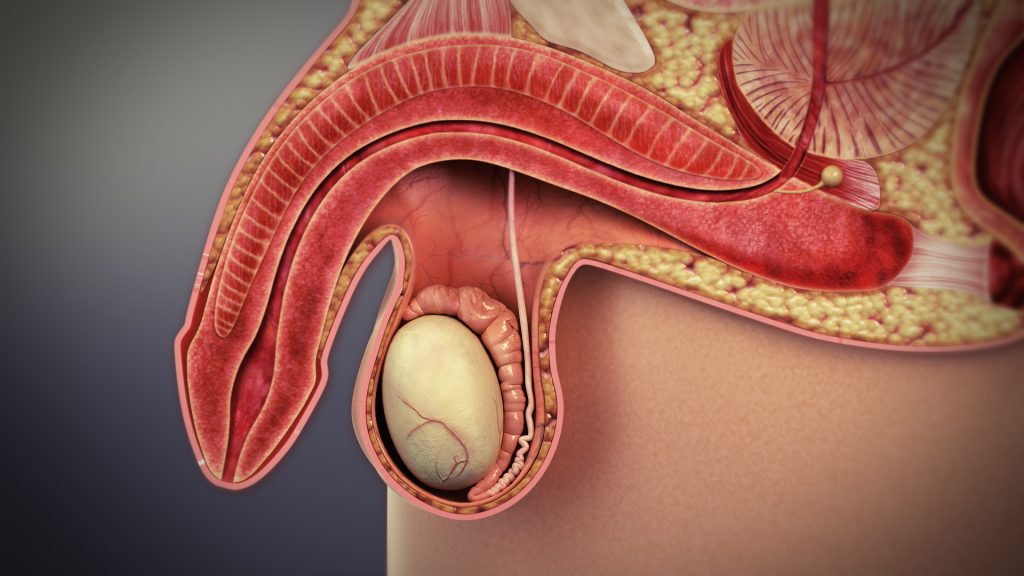Causes of Erectile Dysfunction
It’s no secret that one of the main health problems of the XXI century is erectile dysfunction. Most men are very poorly informed about health issues. And if health problems arise, they do everything possible to hide the disease, perceiving it as weakness or signs of old age. Moreover, they attribute symptoms to fatigue or stress.
Erectile dysfunction is an inability of completing the intercourse, which is necessary for satisfying sexual needs.

Erection mechanism is as follows. In a resting position, the penis, mainly composed of cavernous and spongy bodies, contains almost no blood. At the moment of arousal, they fill with blood, and the ischiocavernous muscles at the base of the penis join the process; when contracting, they block the outflow of blood, and thus maintain an erection. Following from the described mechanism, we can safely assume that in case of problems with erection, the cause must be sought in the arteries and veins of muscle and nerve fiber.
Erectile dysfunction can be reflected not only in a complete lack of erection, but also in a short erection with premature ejaculation or decreased desire and lack of orgasm.
What can cause erectile dysfunction?
There are many causes of erectile dysfunction, but we will divide them into five main groups.
So, the first group includes neurological disorders. They include Parkinson’s disease, spinal cord diseases, circulatory disorders and multiple sclerosis.
The second group is endocrine disorders. These can be diabetes, prolactinoma (a brain tumor), obesity, hypogonadism (underdevelopment of the genital glands), sarcoidosis (a disease in which granulomas form in the affected systems and organs).
The third group is mental disorders. These are various kinds of depression, drug addiction, alcoholism and specific mental disorders (“fear of impotence” and mental traumas associated with sexual life).
The fourth group includes anatomical or physiological penis disorders. This group includes Peyronie’s disease (an infrequent pathology in which the penis is curved due to the growing fibrous changes in the tunica albuginea of the corpora cavernosa), as well as different kinds of traumas and injuries of the penis.
The fifth group is vascular diseases. These are atherosclerotic lesions of the penis as a complication of the underlying disease. Iliac artery occlusion (most often it is the result of bone fractures in this area). Venous disorders (increased outflow of blood from the penis). Different circulatory disorders (including strokes) and the combinations of various vascular lesions of the penis.
Having studied the above-mentioned groups, the pathology under consideration can be divided into two types. These are organic and mental disorders. Organic dysfunction is usually emerging gradually, while the mental problems appear suddenly, as a cause of stress.
In life, there are often several reasons of erectile dysfunction. For example, diabetes plus smoking and sedentary lifestyle. It is impossible to exclude daily stress, unhealthy diet, irregular sex life, etc. All of the above factors overlap and aggravate this problem.
In the treatment of erectile dysfunction, as well as any other disease, it is important to recognize the disease in time and not neglect it. Specialists categorically state that the slightest symptoms of sexual dysfunction are a reason for an immediate visit to the doctor. Modern medicine has a huge variety of tools necessary for helping such patients.
Since the causes of erectile dysfunction are diverse, the treatment in each case should be prescribed by the doctor who knows the history of the disease and has your test results. A specialist consultation is a necessary step in solving the problem of erectile dysfunction. You should discard all doubts about how “convenient” it is to discuss the intimate problems with the doctor. You need to remember that erectile dysfunction is very easy to treat, and the sooner you contact the specialist, the sooner your problems will be successfully resolved.
The most important points to know about erectile dysfunction, its treatment and prevention
No one is safe from sexual failure, so you shouldn’t take it to heart. It is better to relax, calm down, change the environment and try again after a while.
Make sure to consult and undergo a careful examination by the competent specialist in the field of urology or andrology, if you don’t have an erection during masturbation/night and morning erections.
If you’re worried about periodic problems with erection during intercourse, you need the help of a competent sexologist.
You shouldn’t try to increase the duration of intercourse artificially. Don’t continue one intercourse for more than 4 hours, even if you are capable of it without much effort. It is not harmless to the cavernous tissue of the penis and can cause hardening over time.
To minimize the likelihood of developing erectile dysfunction: lead a healthy lifestyle; exclude smoking, alcohol and drugs; always consult your doctor before taking any medications; have a regular sex life without prolonged periods of abstinence and sexual excesses; be sure to talk to an urologist if you’re injured, have undergone surgery on the perineum or pelvis, or if you have diabetes/hypertension.
The diagnoses of diabetes and erectile dysfunction are closely connecterectile dysfunction with each other. In accordance with the data of the American Diabetes Association about 50% of men diagnoserectile dysfunction …
Dramatic changes can come to your life then. This is not only exciting and interesting to do sports, but will bring you to more successful relationship. It works like a …
Cialis is a unique medication that made the treatment flexible. Person does not have to feel like a patient with it. Man can forget about the diagnosis and take Cialis …
What is Sildenafil: The drug Sildenafil is considered a selective inhibitor of cyclic adenosine monophosphates with specific characteristics. The drug localizes cyclic nucleotide type 5 cells, responsible for the metabolism …

 +1 877 888 97611
+1 877 888 97611  +44 2036081340
+44 2036081340